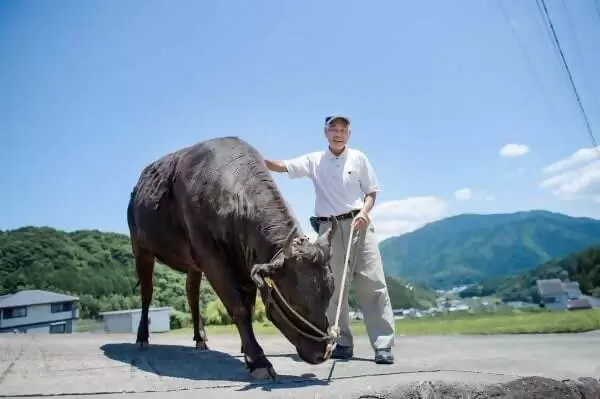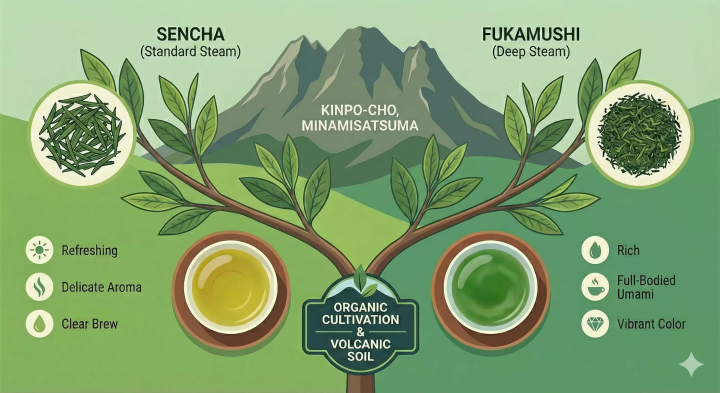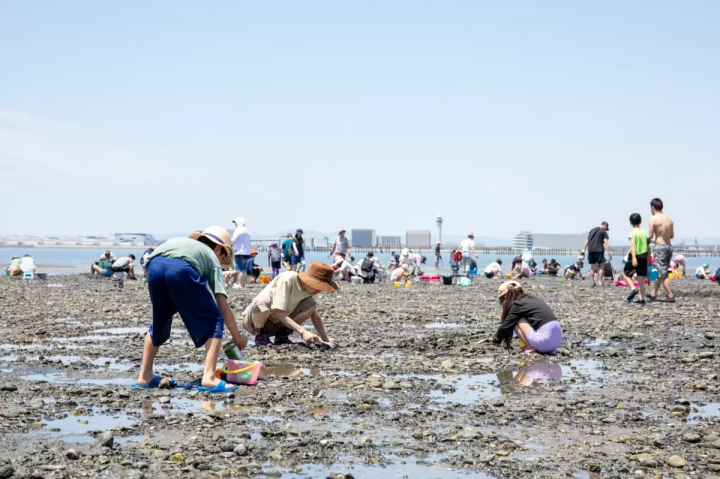Bug Bite Cream in Japan: 6 Best Anti-Itch Products

Discover the best anti-itch insect bite creams like Muhi Anti Itch Japan and Japanese Mosquito Bite Medicine, along with info on common insect bites and more.
Japan’s Go-To Anti-Itch Bug Bite Products
In the summer and humid months in Japan, mosquitoes and insects thrive and naturally gravitate towards humans. Bites can result in itchy, painful marks that can put a damper on traveling.
Luckily, anti-itch creams, liquids, and other relief products are sold at Japanese pharmacies and stores throughout the country, often costing less than 1,000 yen. This article covers effective products for rashes, itches, and repelling bugs that will keep you comfortable.
Japan’s Must-Have Anti-Itch Bug Bite Products
1. Muhi S
2. Kinkan
3. Unakowa Cool Punch
Prepare Yourself Before You’re Stung! Insect Repellent Products
4. Kinchol Insect Repellent with Powder
5. Mushi to Baibai Non-Gas Type and Skin Guard Aqua
6. Mushi Yoke Bracelet Alpha
7. Where to Buy Anti-Itch and Insect-Repellent Products in Japan
8. Common Bug Bites in Japan
1. Muhi S
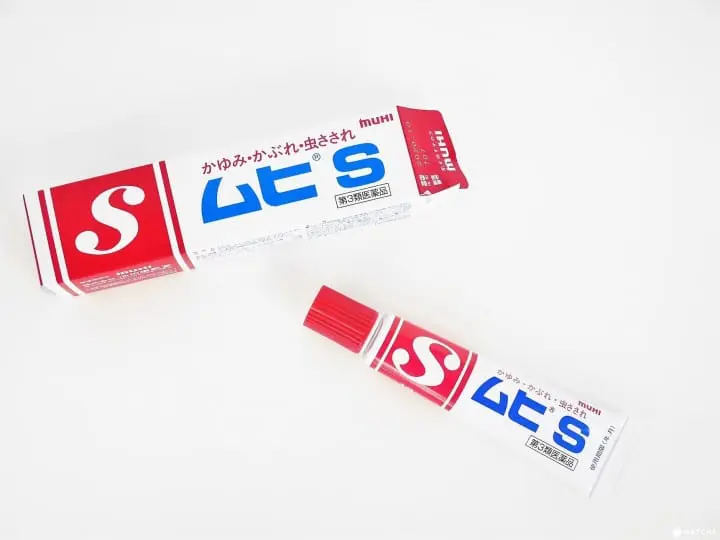
Muhi is an anti-itch cream that has long been loved in Japan. This ointment is easy to spread and leaves little residue behind. Its compact size makes it easy to carry around in a pouch, and because it doesn’t stimulate the skin very much, you can use it whenever you want.
Muhi is effective not only for bug bites but for heat rashes and skin rashes, too. Muhi is also sold in a liquid form, so choose whichever is best for you. Muhi is sold for about 500 to 600 yen with tax for an 18-gram tube. You can find it on Amazon Japan and buy it online, or in stores.
↑ Return to the top of article.
2. Kinkan
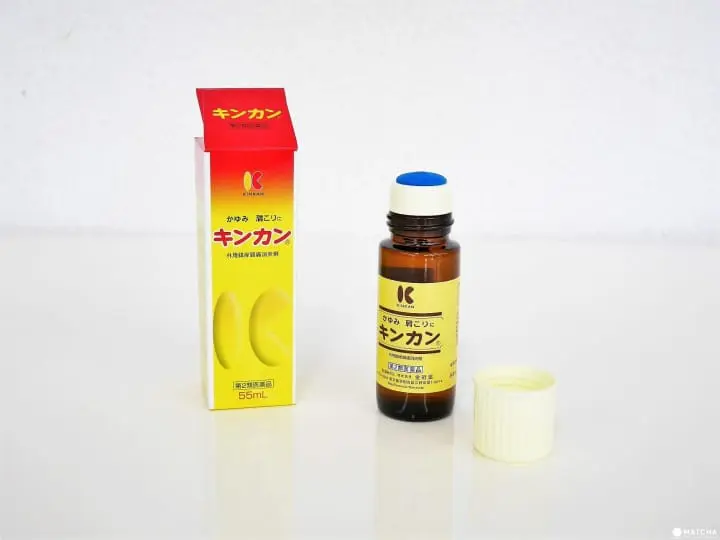
Kinkan is a liquid anti-itch medication. Open the cap and the upper part of the bottle becomes a sponge, so you can lightly apply it to the affected area without getting your hands dirty. If you scratch the itch too much beforehand, you may feel an extremely intense stinging sensation when you apply it though.
Kinkan is also effective on stiff shoulders, relieving pain from impact injuries, and for sprains too, so it’s convenient to carry a bottle around.
Kinkan costs around 700 to 1,000 yen for a 50-ml bottle. You can find Kinkan on Amazon Japan and in stores.
↑ Return to the top of article.
Unakowa Cool Punch
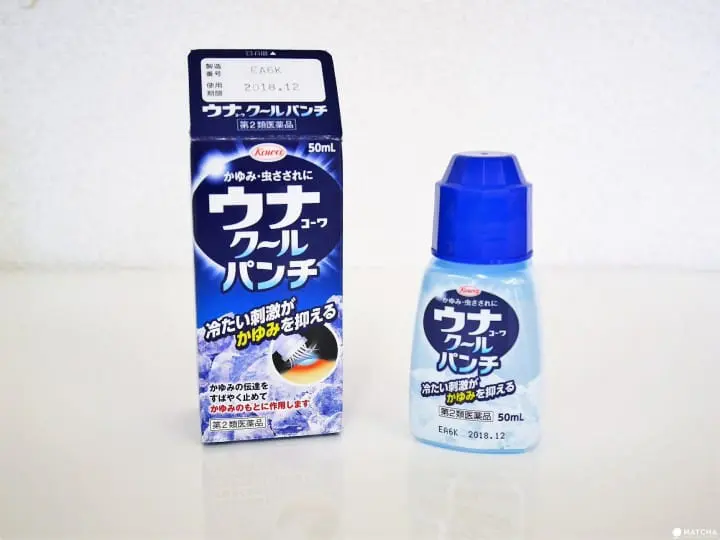
Unakowa Cool Punch is another common liquid anti-itch medication. It has a brush which you can use to apply the liquid to your skin, and it gives just the right amount of stimulation. Of course, it works to alleviate itching, but Unakowa Cool also cools your skin if you rub it on and wait a few minutes, which is pleasant in summer.
Unakowa Cool Punch costs 500 to 600 yen, depending on the store, for a 50-ml bottle. Amazon Japan also carries Unakowa Cool Punch.
↑ Return to the top of article.
Prepare Yourself Before You’re Stung! Insect Repellent Products
Kinchol Insect Repellent with Powder
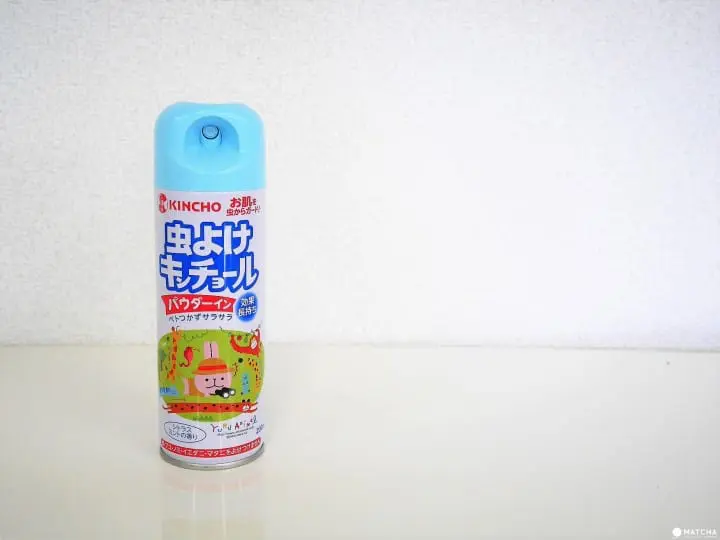
Kinchol is a standard insect repellent in Japan. To use it, just point it at your skin and spray it on. The spray also contains powder, so if you use just a little bit it feels refreshing.
Kinchol is approximately 500 yen for a 300 to 450-ml can; purchase it on Amazon Japan by clicking here.
↑ Return to the top of article.
Say Goodbye to Bugs with Mushi to Baibai Non-Gas Type and Skin Guard Aqua
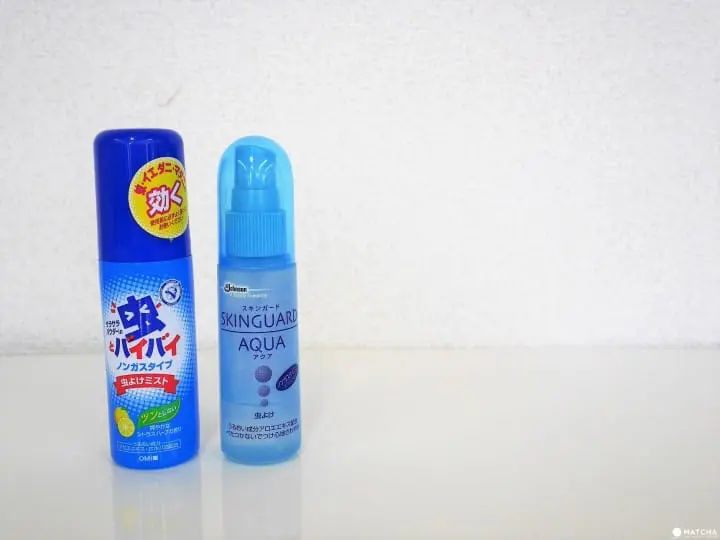
Mist-type repellents, like Mushi to Baibai (around 300 yen for 200-ml) and Skincare Aqua Guard (around 400 yen for 50ml) are small and easy to carry around than spray cans, and are better sellers. These products don’t feel sticky when used on the skin, so we recommend them too.
Mushi to Baibai can be purchased online via Amazon Japan for approximately 300 yen. Skin Guard Aqua is also for sale on Amazon Japan, and can be purchased for around 400 yen.
↑ Return to the top of article.
Mushi Yoke Bracelet Alpha
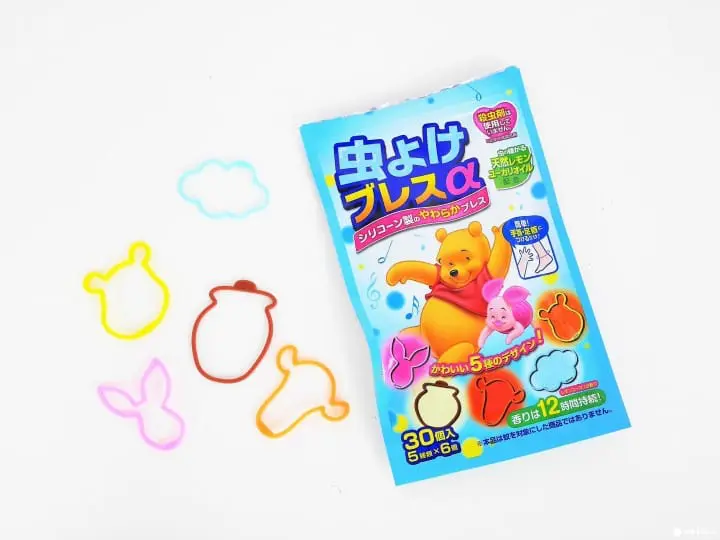
If you want to keep bugs away after a shower, but don’t want to put anything on your skin, we recommend insect repellent bracelets. These bracelets use lemon eucalyptus oils that insects hate, which will prevent them from coming anywhere near you.
You can even wear these bracelets on your ankles too, as they're made from elastic or silicon and fit quite comfortably. A pack of bracelets costs around 600 yen. Click here to view and purchase them on Amazon Japan.
↑ Return to the top of article.
FAQ
Do I need bug repellent in Japan?
In certain regions and seasons, especially during the warmer months, using bug repellent in Japan can be beneficial to prevent insect bites and discomfort. Mosquitoes, particularly in rural or wooded areas and during the summer season, can be prevalent and may cause itching or potential health concerns due to diseases they can carry. It's advisable to carry insect repellent when visiting parks, forests, or areas with standing water where mosquitoes might breed. Additionally, ticks can be a concern in wooded areas, so using insect repellent with DEET or picaridin and wearing long-sleeved clothing can help prevent tick bites. If you are concerned about specific insects or diseases, it's recommended to consult with local health authorities or healthcare providers for advice tailored to your location and travel plans in Japan.
How to prevent mosquito bites in Japan?
Preventing mosquito bites in Japan, particularly during warmer periods, is crucial to avoid discomfort and reduce the risk of mosquito-borne illnesses. Measures to prevent mosquito bites include using insect repellent containing DEET, picaridin, or oil of lemon eucalyptus on skin and clothing, wearing long sleeves and pants to minimize exposed skin, and using mosquito nets while sleeping in accommodations without window screens. It is advisable to avoid peak mosquito hours, eliminate standing water where mosquitoes breed, and stay in air-conditioned or screened areas to minimize exposure. Additionally, using mosquito repellent devices in enclosed spaces can help deter mosquitoes. By adopting these preventive strategies, individuals can effectively reduce the likelihood of mosquito bites and lower the risk of mosquito-borne diseases while in Japan.
Are mosquitos a problem in Japan?
Mosquitoes can be a seasonal nuisance in Japan, particularly during the warmer months and in areas with standing water. While not all regions in Japan have severe mosquito problems, certain areas, especially those with forests, rural landscapes, or near water bodies, can experience higher mosquito activity. Places like parks, gardens, and wooded areas are common breeding grounds for mosquitoes.
In addition to causing discomfort from their bites, mosquitoes in Japan can carry diseases such as Japanese encephalitis and dengue fever, although the risk of contracting these diseases is relatively low, especially in urban areas. Still, it's recommended to take precautions to avoid mosquito bites, such as using insect repellent, wearing protective clothing, and using mosquito nets while sleeping in areas where mosquitoes are prevalent.
Can you buy DEET in Japan?
DEET-based insect repellents are available in Japan, although they might not be as commonly used or as easily found as in some Western countries. DEET products can be purchased at pharmacies, drugstores, outdoor shops, and larger supermarkets in Japan. They are typically sold in the form of sprays, lotions, or wipes designed to repel mosquitoes and other insects. When looking for DEET-based repellents in Japan, it's advisable to check labels for the concentration of DEET, as products with varying strengths may be available.
What virus do you get from Japanese mosquito bites?
Japanese mosquitoes can potentially transmit diseases such as Japanese encephalitis virus (JEV), dengue fever, and chikungunya. While the risk of contracting these diseases from mosquito bites in Japan is generally low, it is more prevalent in rural areas and during the summer months. Japanese encephalitis is a viral infection that can lead to brain inflammation, dengue fever causes flu-like symptoms, and chikungunya results in fever, joint pain, and rash. Precautions to prevent mosquito bites, such as using insect repellents, wearing protective clothing, and avoiding outdoor activities during peak mosquito activity, are recommended to reduce the risk of mosquito-borne illnesses while in Japan, particularly in areas where mosquitoes are prevalent.
↑ Return to the top of article.
Where to Buy Anti-Itch and Insect-Repellent Products in Japan
The products listed above can all be found for sale on Amazon Japan. For in-person shopping, try drugstores, Don Quijote, and even some convenience stores. Supermarkets may even sell some in the non-food product aisles. Items in stock will vary by location, so ask the staff for more information.
↑ Return to the top of article.
Common Bug Bites in Japan
In Japan, residents and visitors alike frequently encounter bites from various insects, most notably mosquitoes, ticks, and bedbugs. Mosquitoes are most active during the hot and humid summer months, and their bites can cause itching, swelling, and in rare cases, transmit diseases such as Japanese encephalitis or West Nile virus. Ticks are less common but can be found in grassy or wooded areas, posing a risk of allergic reactions or the transmission of illnesses like tick-borne encephalitis.
Bedbugs, which can infest homes, hotels, and hostels, often lead to itchy bites and skin irritation. Additionally, bites from fleas, which are sometimes found in outdoor areas or on pets, can also cause itching and discomfort.
Though rarer, insects like Mukade (Japanese giant centipedes) can deliver painful, venomous bites that may result in swelling and allergic reactions, and Suzumebachi (Japanese hornets) can sting aggressively, causing severe pain and potentially life-threatening allergic responses.
To avoid Mukade, it is best to be cautious when walking in grassy or wooded areas, especially at dusk or dawn, and to wear long pants and sturdy footwear. Inspect clothing and shoes carefully before entering homes or indoor environments. For Suzumebachi, avoid disturbing or provoking hornets by staying clear of their nests and refraining from swatting at them.
































![[Kagoshima] Overcoming 12 Years of Hardship: Walking through Minamisatsuma City, the sacred land where the monk Ganjin landed](https://resources.matcha-jp.com/resize/720x2000/2026/02/21-259481.webp)
